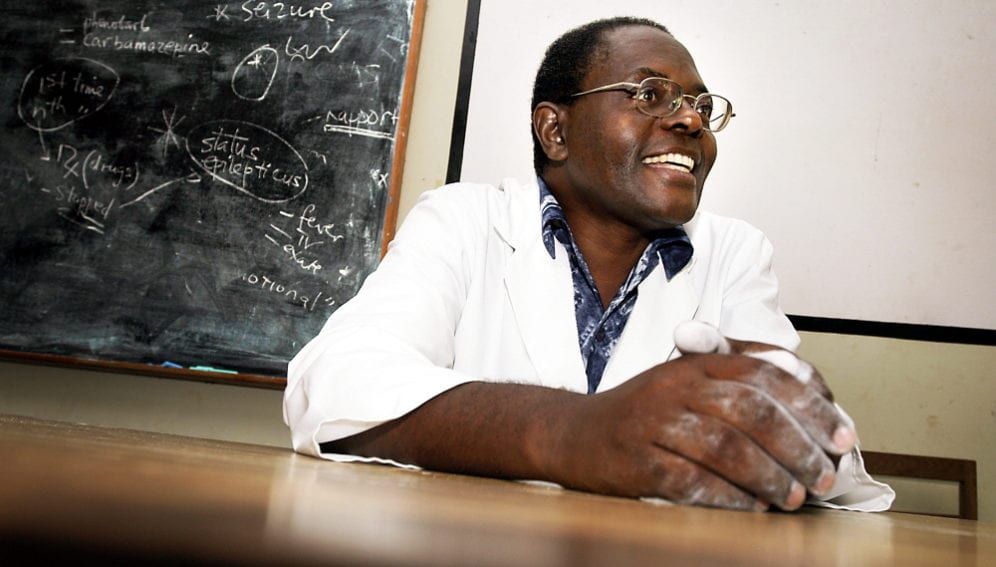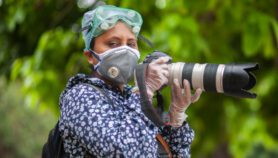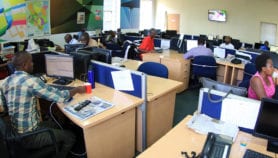By: Anita Makri
Send to a friend
The details you provide on this page will not be used to send unsolicited email, and will not be sold to a 3rd party. See privacy policy.
Evidence of impact for SciDev.Net’s opinion articles shows what researchers stand to gain from improving communication skills.
It's safe to say that scientists are careful about what they tell their peers and the public — "afraid to be assertive" is how a Peruvian journalist put it to me last month, exasperated with researchers hedging their statements with talk of possibilities and methodological approaches.
This does, of course, reflect the nature of science as a process of constant inquiry and generally incremental progress. There is always more to know, more to understand, particularly for the complex, real-world problems typical of science for development. This helps explain the nuanced and contextualised statements.
In fact, there is a parallel in journalism. One principle that guides journalists is balance: presenting two sides of the story objectively, without offering their own view.
Yet both scientists and journalists do express their opinion through op-eds, columns, blogs and interviews, offering informed perspective on current debates. And they do this without undermining their professionalism.
Quite the contrary: a carefully thought-through and well-documented opinion can give scientists visibility in their fields and beyond academic circles. And it can set off ripples of change, however small, by offering new insight, or proposing a rethink of scientific or technological systems (for a recent example, see Farming and knowledge monocultures are misconceived).
But what do we really know about the impact of opinion articles? SciDev.Net's monitoring and evaluation process, coordinated by my colleague Jessica Romo, has been tracking the 'afterlife' of op-eds published on our website, with the results due to be published later this month.
Though it doesn't reflect all content on the website, this evidence maps out how assertive messages from scientists can make a difference in the world of policy and development. And it strengthens arguments about what researchers can gain by sharpening their skills for non-technical communication.
Making a splash
Let's take a sneak peak.
The report is based on 36 opinion articles published from late September 2011 to the end of August 2012. The authors of about 94 per cent of these reported an impact related to reach, engagement, networking and policy influence (such as increased awareness or a shift in discourse).
In many cases, authors made new contacts with relevant organisations, reaching beyond the academic and research sector to specialist policy and development audiences. And networking has brought invitations to projects and events.
For example, within a week of writing Farmers in Africa should switch to biopesticides, Manuele Tamò — country representative of the International Institute of Tropical Agriculture in Benin — was asked to write a concept note for a funded project to implement ideas expressed in the article.
And shortly after publication of his article Support community mapping for climate adaptation, John Waugh was contacted by high-profile organisations to participate in events aimed at influencing the use of mapping technologies.
The report contains numerous other examples. These also show that having an article published on our website can raise the profile of both author and research — although clearly, authors who made more effort (for example, by using their networks to disseminate their articles) are more likely to report more impact.
Communication skills
This evidence reveals some concrete pathways to impact for scientists who engage in communication beyond writing scientific papers and presentations.
“Scientists who are better prepared to engage with society … are perhaps most needed in poorer countries, which need the best available knowledge to put their development on a more sustainable path.”
Bernard Slippers, University of Pretoria, South Africa
Some are catching on to this. By and lrge, they are researchers who recognise the value of sharing their knowledge with simpler language and through a variety of media, including social media — but they don't reflect a shift in institutional thinking.
A change in science education systems, incentives and training would go a long way to encourage wider engagement.
Bernard Slippers, a professor in the department of genetics and the Forestry and Agricultural Biotechnology Institute at the University of Pretoria, South Africa, argues for the value of ensuring scientists gain such skills early in their careers.
"Scientists who are better prepared to engage with society … are perhaps most needed in poorer countries, which need the best available knowledge to put their development on a more sustainable path," he writes in an opinion article.
"[But] many young scientists tell stories of how they have been discouraged to help with public understanding of science, either by superiors in their institutions or by evaluation and promotion criteria."
Slippers calls for scientists to be trained in 'soft' skills, including management and communication, and for new criteria to evaluate the impact of public engagement.
Other priorities
When I was a research scientist during the early part of my career, I certainly failed to see communication or public engagement as priorities. More typically, a young scientist will spend their time and energy honing analytical skills, chasing the next grant or writing up their work for a journal article.
But as an editor it's easy to see how a lack of understanding of how the media work, or of the big picture in one's field, can become limitations for a scientist asked to comment on a news story or write an opinion article.
A lack of communication skills isn't an intractable barrier. Experience and confidence help — though equally useful is reading around one's field. A good editor or journalist can also help by unmasking messages hiding in jargon, the passive voice and excessive detail.
But SciDev.Net's evidence of opinion article impact suggests that scientists can gain a lot by cultivating their own skills to give their research a voice beyond the cosy circles of academia.
If my experience during a few days working in Peru is anything to go by, there is a receptive audience in the developing world: on two occasions, I was approached by university staff looking for communication training resources.
Some are available: INASP's AuthorAID project is one example and our own Practical Guides include resources targeted at scientists, with tips on public engagement. But there is scope for more systematic training — as part of higher or professional education — that should become part of every scientist's toolkit.
The evidence of influence for opinion articles we publish shows important benefits and suggests that, by giving developing country scientists a more accessible voice, communication skills can help address a persisting imbalance in policy influence between the global North and South.
Anita Makri
Opinion & special features editor, SciDev.Net
@anita_makri














